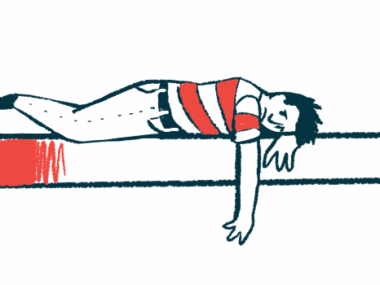Phase 3 Relacorilant Trial Enrolling Cushing’s Patients With Adrenal Origin
Written by |

The first patient has been enrolled in Corcept Therapeutics‘ Phase 3 GRADIENT trial, which is evaluating relacorilant as a potential treatment for people with Cushing’s syndrome due to either an adrenal tumor or enlargement of the adrenal gland, the company announced.
“GRADIENT is the first systematic study of the benefits of a medical treatment in these patients,” Andreas Grauer, MD, chief medical officer at Corcept, said in a press release. “We expect it to contribute meaningfully to physicians’ ability to provide optimal care.”
“We are excited to begin enrollment in GRADIENT,” Grauer added.
People with endogenous Cushing’s syndrome — caused by the overproduction of cortisol within the body — produce excess cortisol, usually due to a benign tumor in the pituitary or adrenal glands. This can lead to serious problems, such as type 2 diabetes and high blood pressure.
Relacorilant (CORT125134) is a small molecule designed to prevent the effects of excess cortisol by blocking one of its receptors, called the glucocorticoid receptor.
Data from a previous Phase 2 trial (NCT02804750) showed relacorilant improved glucose tolerance and reduced blood pressure in patients with Cushing’s syndrome.
The GRADIENT trial (NCT04308590) is recruiting up to 130 adults with type 2 diabetes mellitus, impaired glucose tolerance, and/or hypertension associated with high levels of cortisol due to an adrenal tumor or enlargement of the adrenal gland (hyperplasia).
The trial will be conducted at about 60 sites across the U.S., Europe, and Israel. More information on contacts and locations can be found here.
The participants will be given an oral daily dose of 100 mg of relacorilant or a placebo for five months, that will be gradually increased to a target dose of 400 mg. Those completing the study may be eligible to enroll in an extension study.
The main goals are to determine the safety of relacorilant in this patient population and to determine improvements in blood pressure and glucose metabolism.
“Patients with Cushing’s syndrome of adrenal origin have poor health outcomes, even if the course of their decline is sometimes less rapid than in Cushing’s syndrome of other etiologies,” Grauer said.
A second Phase 3 trial, called GRACE (NCT03697109), is assessing the safety and effectiveness of relacorilant in people with endogenous Cushing’s syndrome and concurrent type 2 diabetes mellitus, impaired glucose tolerance, and/or uncontrolled high blood pressure (hypertension).
That trial is recruiting up to 130 patients with endogenous Cushing’s syndrome across the U.S., Canada, Europe, and Israel.
If positive, the results from the GRACE trial will be used in a future new drug application seeking approval of relacorilant as a treatment for all forms of Cushing’s syndrome, Corcept said.
The U.S. Food and Drug Administration has granted orphan drug designation to relacorilant for the treatment of Cushing’s syndrome. That designation qualifies the drug’s developer for various incentives, including tax credits for qualified clinical testing. The same indication has been recommended by the European Medicine Agency‘s Committee for Orphan Medicinal Products(COMP).





